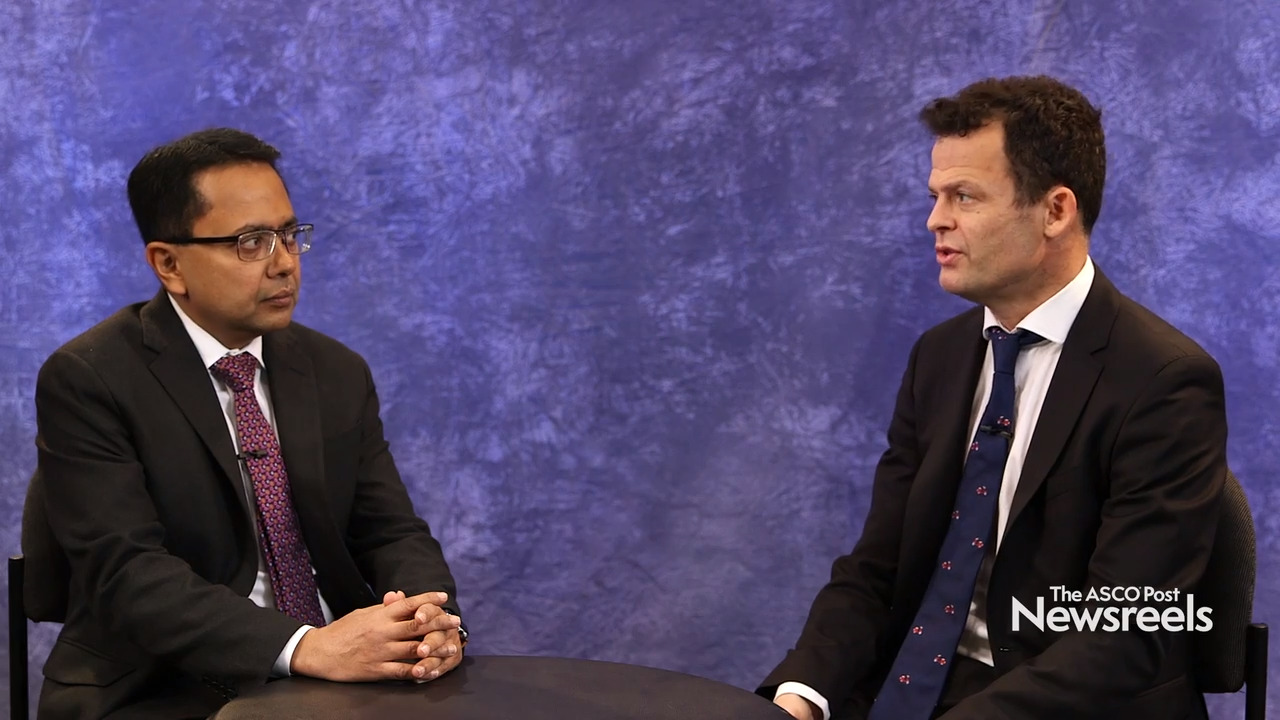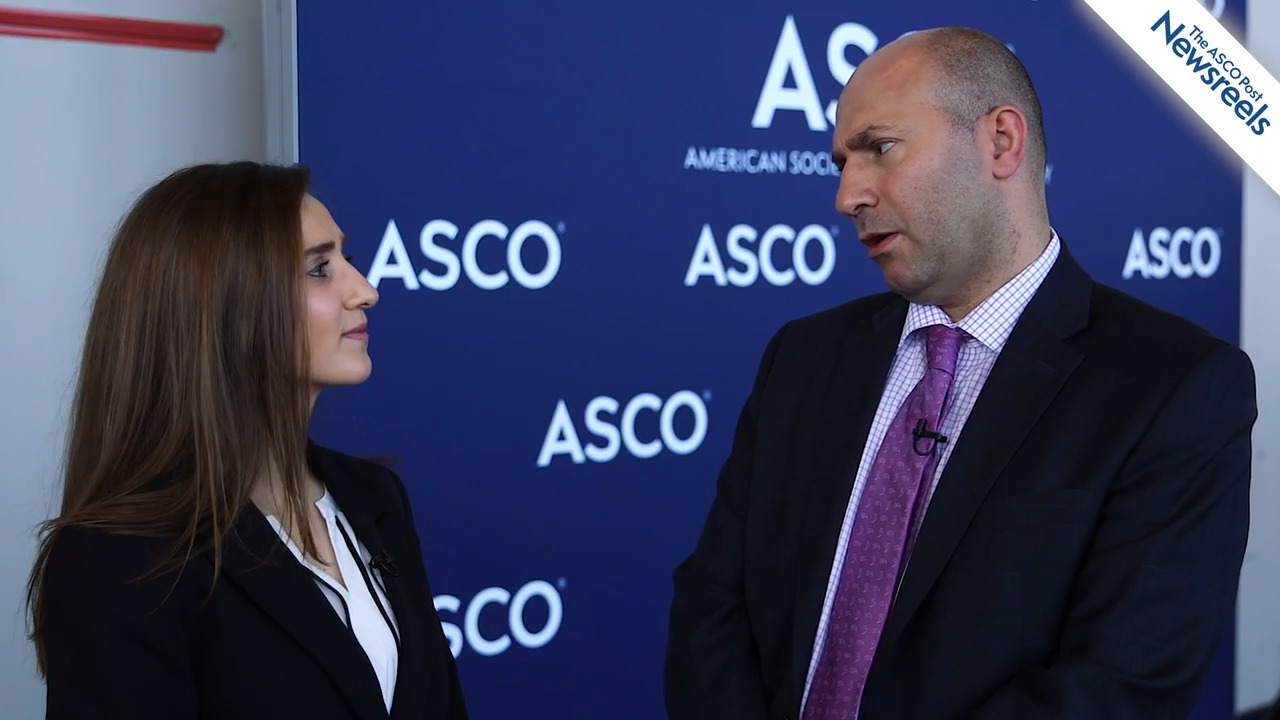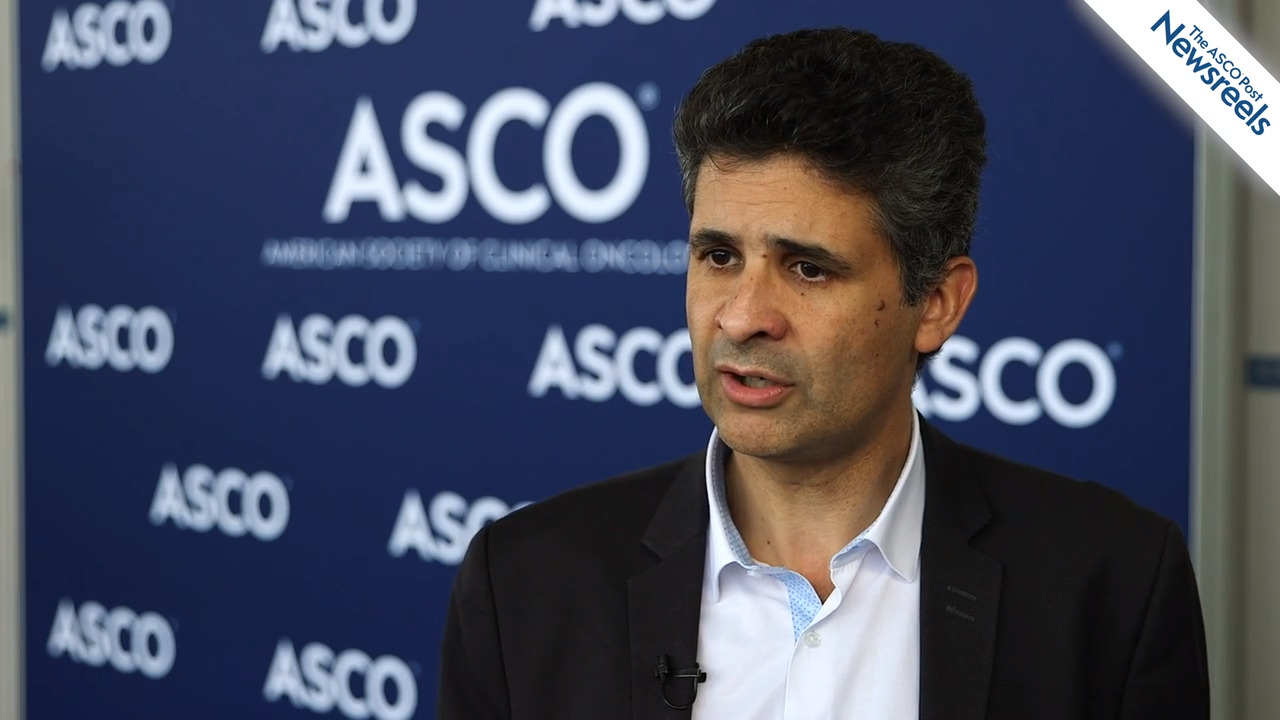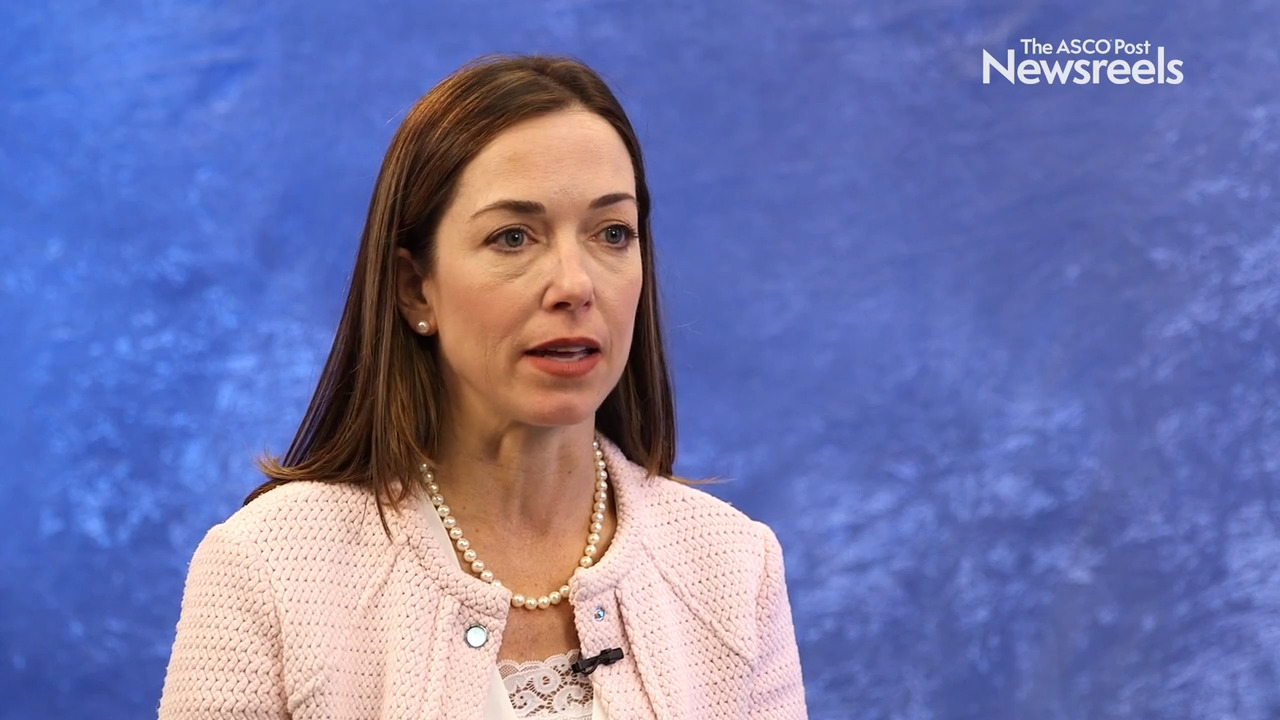Mansoor Raza Mirza, MD, and Don S. Dizon, MD, on Recurrent Platinum-Sensitive Ovarian Cancer: Niraparib Plus Bevacizumab
2019 ASCO Annual Meeting
Don S. Dizon, MD, of the Lifespan Cancer Institute, and Mansoor Raza Mirza, MD, of Copenhagen University Hospital, discuss study findings that showed, compared with niraparib alone, niraparib plus bevacizumab improved progression-free survival in women with recurrent platinum-sensitive ovarian cancer (Abstract 5505).
Neeraj Agarwal, MD, of Huntsman Cancer Institute, University of Utah Health Care, and Thomas Powles, MD, PhD, of Queen Mary University of London, discuss phase III study findings on outcomes with combination therapy for intermediate/poor-risk and sarcomatoid subgroups of renal cell carcinoma (Abstract 4500).
Toni K. Choueiri, MD, and Sarah Abou Alaiwi, MD, both of Dana-Farber Cancer Institute, discuss the association of polybromo-associated BAF-type mutations with overall survival in patients with different solid tumors treated with checkpoint inhibitors (Abstract 103).
Karim Fizazi, MD, PhD, of the Institut Gustave Roussy, University of Paris-Sud, discusses study findings showing that not only does darolutamide prolong metastasis-free survival, it maintains quality of life as well as delays worsening of pain and disease-related symptoms compared with placebo for patients with nonmetastatic castrate-resistant prostate cancer (Abstract 5000).
Sara A. Hurvitz, MD, of the UCLA Jonsson Comprehensive Cancer Center, discusses the first study of ribociclib plus endocrine therapy vs endocrine therapy alone to demonstrate significantly longer overall survival in peri- and premenopausal women with advanced breast cancer (Abstract LBA1008).
Suresh S. Ramalingam, MD, of Winship Cancer Institute, Emory University, discusses findings from the ECOG-ACRIN 5508 study, which showed that single-agent bevacizumab or pemetrexed is the optimal maintenance therapy for advanced nonsquamous NSCLC (Abstract 9002).





